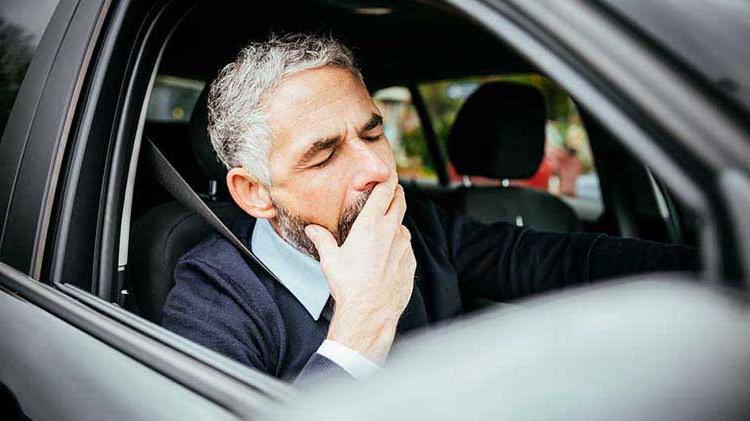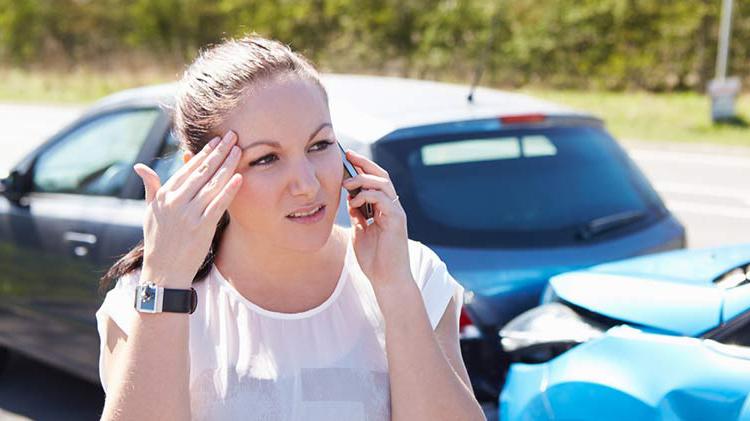What to do when you hit a deer
Even if you're a vigilant driver, auto-deer collisions can happen. Learn what to do next.
Animal collisions — especially hitting a deer — has the potential to cause significant damage to your vehicle. Variables, such as speed and point of impact can factor into the extent of damage. In some cases, hitting a deer can render your car not drivable.
Even careful drivers have stories about hitting a deer that darted out in front their vehicle. In fact, State Farm® estimates the odds of hitting an animal is 1 in 128. That risk of an animal collision can increase depending on the state where you are driving.
Also, the risk of being in an animal collision is higher in late fall and early winter when deer are on the move more. State Farm estimates that between July 1, 2023 and June 30, 2024 there were more than 1.8 million auto claims related to animal crashes.
If it happens to you, try to stay calm and keep these tips in mind:
What to do after a deer collision
- Move your vehicle to a safe place. If possible, pull over to the side of the road, and turn on your hazard lights. If you must leave your vehicle, stay off the road and out of the way of any oncoming vehicles. Deer are most active at dusk and dawn — times when you or your vehicle may be less visible to other motorists.
- Call the police and EMT services (if needed). Alert authorities if the deer is blocking traffic and creating a threat for other drivers. If the collision results in injury or property damage, you may need to fill out an official report. This report also can prove useful when filing your insurance claim.
- Document the incident. If it's safe to do so, take photographs of the roadway, your surroundings, damage to your vehicle and any injuries you or your passengers sustained. If witnesses stop, take down their account of what occurred, and ask for their contact information.
- Stay away from the animal. A frightened, wounded deer can be dangerous and could use its sharp hooves or antlers to harm you. The police will determine what to do with the animal when they arrive at the accident scene.
- Contact your State Farm agent. The sooner you report damage or injuries, the sooner your agent can get the claim process started for you. You can also report a claim online at cesametal.net®, by calling 1-800-STATE-FARM (800-782-8332)(800-782-8332) or through the State Farm mobile app.
- Don't assume your vehicle is safe to drive. Double-check that your car is drivable after colliding with a deer. If you are in a safe location and if it's safe to do so, look for leaking fluid, loose parts, tire damage, broken lights, a hood that won't latch and other safety hazards. If your vehicle seems unsafe in any way, call for a tow.
Does insurance cover hitting a deer?
Before an accident occurs, see that you have the right protection for your needs. Damages from auto-deer crashes are typically covered under comprehensive insurance, not collision. However, if you swerve to avoid hitting a deer, miss it and then collide with another car or an object, this will likely be considered a collision loss.
Will the animal collision impact your future premiums? Maybe. It will depend on the current terms of your insurance policy, the state you live in and what happened in the crash. You may want to ask your insurance provider about this.
Do you have to pay a deductible if you hit a deer?
People typically select deductible amounts in their insurance policy. The deductible is the amount you pay out of pocket before insurance starts paying for a covered loss. By reviewing your policy, an insurance provider can help determine what deductible would apply if you hit a deer.
Is it illegal to hit a deer and drive off?
In some states it may be fine to leave the scene after hitting a deer and in other states you may be required to report it. Know the laws in your state. If you aren't sure what to do, play it safe and call your local authorities. Plus, having a police report can be very helpful in filing a claim for the damages.
What if the deer runs away
If you hit a deer and it runs away, take pictures of any blood, hair or fur that may be left behind on your vehicle. Call the authorities if any damage or injuries.
Talk to an agent to learn more
If you have questions about auto policy coverages, we recommend sitting down with an agent to learn more.
You can get an auto insurance quote now, or give us a few details and a State Farm® agent will reach out to you.




